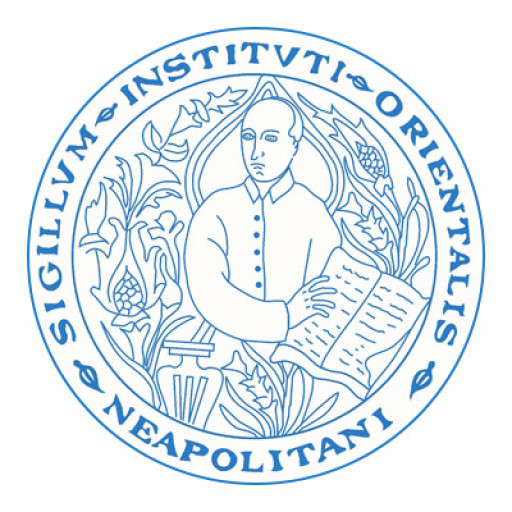Photos of university / #uchicago
The program in Comparative Human Development focuses on the study of persons over the course of life; on the social, cultural, biological, and psychological processes that jointly influence development; and on growth over time in different social and cultural settings. The study of human development also offers a unique lens through which we consider broad questions relevant to the social sciences, like the processes and impacts of social change, and the interactions of biology and culture. Faculty members in Comparative Human Development with diverse backgrounds in anthropology, biology, psychology, and sociology conduct research on topics that include (but are not limited to): the social and phenomenological experience of mental illness; the impact of socioeconomic context on growth and development; the influence of social interaction on biological functioning; the tensions inherent in living in multicultural societies; the experience and development of psychotherapists in Western and non-Western countries; and the ways in which youth in Third World countries are forging new conceptions of adulthood. Given this interdisciplinary scope, the program in Comparative Human Development provides an excellent preparation for students interested in advanced postgraduate study at the frontiers of several social science disciplines or in careers and professions that require a broad and integrated understanding of human experience and behavior, e.g., mental health, education, social work, health care, or human resource and organizational work in community or corporate settings.
A two-quarter introductory sequence in Comparative Human Development should be completed prior to the Spring Quarter of a student’s third year. CHDV 20000 Introduction to Human Development focuses on theories of development, with particular reference to the development of the self in a social and cultural context. CHDV 20100 Human Development Research Designs in Social Sciences focuses on modes of research and inquiry in human development, including basic concepts of research design and different methods used in studying human development (e.g., ethnography, experiments, surveys, discourse analysis, narrative inquiry, and animal models). Consideration is given to the advantages and limitations of each approach in answering particular questions concerning person and culture.
Methods
Students must complete one quantitative or one qualitative Methods course or one research methods (or statistics) course in a related department. Courses that are not on the following list may be petitioned to count for Methods (see Petitions below).
The following are courses since 2012 that have fulfilled the Methods requirement without a petition:
- STAT 20000 Elementary Statistics
- STAT 22000 Statistical Methods and Applications
- PSYC 20100 Psychological Statistics
- CHDV 20101 Applied Statistics in Human Development Research
- CHDV 20405 Pornography and Language
- CHDV 26228 Ethnographic Methods
- CHDV 29301 Qualitative Research Methods
- CHDV 30102 Introduction to Causal Inference
- CHDV 32411 Mediation, Moderation, and Spillover Effects
- CHDV 37802 Challenging Legends and Other Received Truths: A Socratic Practicum
Distribution
Students must complete one course in each of three of the four areas below. These three courses must be taught within the Department of Comparative Human Development and must be designated as fulfilling the particular distribution requirement. (Example topics and courses within each area are listed.)
A. Comparative Behavioral Biology: includes courses on the biopsychology of attachment, evolutionary social psychology, evolution of parenting, biological psychology, primate behavior and ecology, behavioral endocrinology
Courses since 2012 that have fulfilled area A:
- PSYC 20300 Biological Psychology
- CHDV 21500 Darwinian Health
- CHDV 21800 Primate Behavior and Ecology
- CHDV 22201 Developmental Biopsychology
- CHDV 23249 Animal Behavior
- CHDV 26227 Neuroscience and the Social Sciences
- CHDV 26232 Comparative Cognitive Development
- CHDV 26660 Genes and Behavior
- CHDV 27950 Evolution and Economics of Human Behavior
- CHDV 30901 Biopsychology of Sex Differences
- CHDV 34800 Kinship and Social Systems
- CHDV 37500 Research Seminar in Animal Behavior I
- CHDV 37502 Research Seminar in Animal Behavior II
- CHDV 37503 Research Seminar in Animal Behavior III
- CHDV 37850 Evolutionary Psychology
B. Life Course Development: includes courses on developmental psychology; introduction to language development; psychoanalysis and child development; development through the life-course; the role of early experience in development; sexual identity; life-course and life story; adolescence, adulthood, and aging; the study of lives
Courses since 2012 that have fulfilled area B:
- CHDV 20150 Language and Communication
- CHDV 20207 Race, Ethnicity, and Human Development
- CHDV 20209 Adolescent Development
- CHDV 21000 Cultural Psychology: Philosophical and Theoretical Foundations
- CHDV 21901 Language, Culture, and Thought
- CHDV 23900 Introduction to Language Development
- CHDV 25900 Developmental Psychology
- CHDV 26226 Becoming Adult in Postmodern Context(s)
- CHDV 26233 Critical Approaches to Child Mental Health
- CHDV 26235 Life Course Development
- CHDV 30405 Anthropology of Disability
- CHDV 30301 Research on Contextualized Learning, Cognition, and Development
C. Culture and Community: includes courses on cultural psychology; psychological anthropology; social psychology; cross-cultural child development; language, culture, and thought; language socialization; psychiatric and psychodynamic anthropology; memory and culture
Courses since 2012 that have fulfilled area C:
- CHDV 20150 Language and Communication
- CHDV 20207 Race, Ethnicity, and Human Development
- CHDV 20405 Pornography and Language
- CHDV 21000 Cultural Psychology: Philosophical and Theoretical Foundations
- CHDV 21401 Introduction to African Civilization II
- CHDV 21901 Language, Culture, and Thought
- CHDV 23204 Medical Anthropology
- CHDV 23301 Culture, Mental Health, and Psychiatry
- CHDV 26000 Social Psychology
- CHDV 26228 Ethnographic Methods
- CHDV 26233 Critical Approaches to Child Mental Health
- CHDV 27501 Local Bodies, Global Capital
- CHDV 27821 Urban Schools and Communities
- CHDV 30302 Problems of Public Policy Implementation
- CHDV 30320 Violence and Trauma
- CHDV 30405 Anthropology of Disability
- CHDV 32100 Culture, Power, Subjectivity
D. Mental Health and Personality: includes courses on personality theory and research; social and cultural foundations of mental health; modern psychotherapies; psychology of well-being; conflict understanding and resolution; core concepts and current directions in psychopathology; emotion, mind, and rationality; body image in health and disorder; advanced concepts in psychoanalysis
Courses since 2012 that have fulfilled area D:
- CHDV 20209 Adolescent Development
- CHDV 23204 Medical Anthropology
- CHDV 23301 Culture, Mental Health, and Psychiatry
- CHDV 23620 Medicine and Anthropology
- CHDV 23800 Theories of Emotion and the Psychology of Well Being
- CHDV 26233 Critical Approaches to Child Mental Health
- CHDV 26310 Vulnerability and Human Rights
- CHDV 27700 Modern Psychotherapies
- CHDV 30320 Violence and Trauma
- CHDV 30405 Anthropology of Disability
- Application
- Personal Statement
- Application Fee or Automatic Fee Waiver
- Secondary School Report and Transcript
- Two Teacher Evaluations
- Standardized Test Scores. We understand that access to the SAT and ACT is not available in all countries. While we hope that you will make your best effort to take one of these tests if you can, we will give full consideration to the applications without an ACT or SAT score from students in these countries.
- Midyear Report (first-year applicants only)
- English Language Proficiency Test Scores (international applicants only). The University of Chicago only admits students who have demonstrated a superior level of English language competence: we strongly recommend a score of 100 or higher on the Internet-Based TOEFL or 600 or higher on the Paper-Based TOEFL. Minimum required scores on the IELTS (students must take the Academic test, not the General Training test) are an overall score of 7, with subscores of 7 each. The minimum acceptable score on the PTE is 70.
- College Official's Report and Transcript (transfer students only)
- Financial Aid Application
- Interview
Scholarships
First-year international applicants are eligible for both need-based and merit-based aid.










